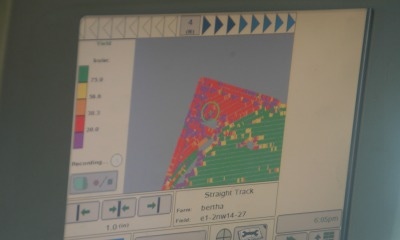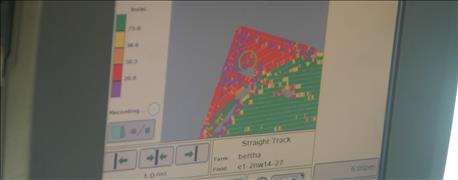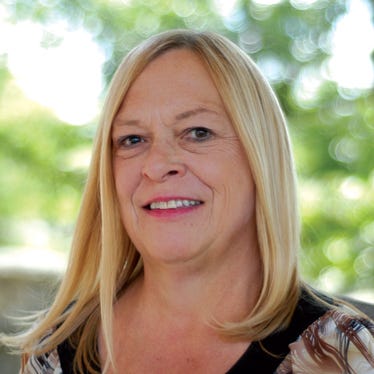
Several types of data have long been included in farmland sales and rental agreements.
That information, things like historical yield, soil test results and other production data, while useful, have not directly influenced farmland values, says Kansas State University professor Terry Griffin.
"This is kind of 'written on the back of an envelope' kind of data, Griffin said, analogous to provide oil change records for an automobile you are trying to sell.
That data probably won't change the value of the used car, but it might speed up the sale.

DATA AND VALUE: A Kansas State University professor says that farmers need to be aware of the increasing tie between availability of big data and access to a strong cellular signal may soon show up in the sale price of farmland.
But what, Griffin questioned in a publication prepared with another K-State professor, Mykel Taylor, might be the impact if the data were sufficient to be considered 'big' as in 'big data?'
Griffin said the question is conceptual at this time and it is more likely that there will be no premium for being able to provide data, but there may be a penalty if it isn't there.
And the likelihood of that penalty grows if the land that you are trying to sell is in a location where there is no cell signal.
"There is a value to knowing that you can use technology to transmit and archive data," Griffin said. "If a buyer has the choice between a piece of land where he has the ability to use telematics and another piece that doesn't have a signal, he's probably going to choose to buy where his telematics works. He may not pay more for it, but the guy without access may have to sell for less."
Telematics -- the ability of farm equipment to transmit information back to a laptop or tablet and even to other pieces of farm machinery -- is a rapidly growing piece of the data world.
"In a lot of places in Kansas, cell phones don't work," Griffin said. "It is all about who your provider is. Most urban areas now have access to cellular service. And you get a signal up and down the interstate. But you get off into the rural areas, where the farms are, and there are broad areas with no access."
"Once the big data sector of the agricultural industry is mature, farmland values and rental rates will be a function of quantity and quality of bio-physical meta-data and geo-spatial, i.e. site specific, data," the Griffin-Taylor report reads.
Meta-data includes management information such as seeding depth, cultivar, machinery diagnostics, time and motion and the dates of tillage, planting, scouting, spraying and input application. Geo-spatial data includes the site-specific soil, scouting and harvest yield.
Griffin said he expects cellular to remain the platform of choice for telematics because the signal strength and is stronger and the ping rate much less than satellite, which makes developing the infrastructure that brings good cell signals to all parts of Kansas an issue that farmers should be aware of.
Currently, he said, cellular companies give first priority to voice communication, second to text and third to data.
Data is third string which means no signal in the places that need data most -- farms, he said.
"Imagine that you area farming 10,000 acres," Griffin said. "You are probably not the person operating the machinery. You want to be able to see what is going on with every machine in every field in real time. You also want those machines to be able to communicate with each other. If you have two sprayers in the same field, they each need to know where the other one is and what is going on," he said.
In that scenario, if a tractor hits a spot where there is no cell signal, it disappears.
"You don't know where your tractor or your driver are then," he said. "And that is definitely something that you want to know."
You also can't tell what may be going on with that piece of machinery in terms of error codes or operational details, he said.
At some point when big data is mature, having the ability to fully collect, transmit and store such information will impact what renters are willing to pay to lease and the price sellers can expect to get for it, he said.
About the Author(s)
You May Also Like






